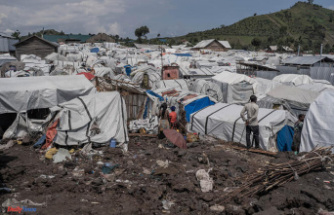Since the Russian invasion of Ukraine, the word "diversification" has appeared at least as often in corporate PR texts as the word "climate-neutral" before it. However, according to one economist, the reduction of dependencies has not yet really started.
Stuttgart (dpa / lsw) - According to an economist, German companies have not significantly reduced their dependencies on individual markets even a year after the Russian invasion of Ukraine. For example, the recently announced billions in investments by large corporations such as Bosch or BASF in China do not indicate a withdrawal from the People's Republic, said the incumbent President of the Kiel Institute for the World Economy (IfW), Holger Görg, the German Press Agency. "There is a discrepancy between what you hear and what is being said and what companies are already doing." The data does not yet show much of a diversification.
A few weeks ago, Bosch announced that it would invest almost one billion euros in a development center in Suzhou, China, over the next ten years. According to CEO Stefan Hartung, 80 percent of Bosch's production in the People's Republic is for the local market. "We are not so dependent on the market that we need the production to serve the rest of the world." Bosch makes around a fifth of its sales in China, but also wants to expand its presence in other regions of the world.
According to Görg, the fact that the move away from large individual markets is generally so slow could be due to the fact that strategic decisions are being postponed in view of the current crises. "But of course it can also be because the problems for the individual companies are not as big as you think." With the Russian invasion, however, many companies realized that they had to rethink their dependencies and supply chains. Spreading risks, bringing production back to Europe a bit, producing more yourself - that's what everyone is talking about now.
It is good that a new awareness has now emerged for the issue of security of supply, said Hartung. "Suddenly we have to ask ourselves: wait a minute, is everything available - not just technologically, but also in terms of raw materials? Do we have enough copper? Do we have enough aluminum? Do we have enough nickel?" In the new geopolitical constellation, it is no longer so easy to find a replacement when in doubt.












